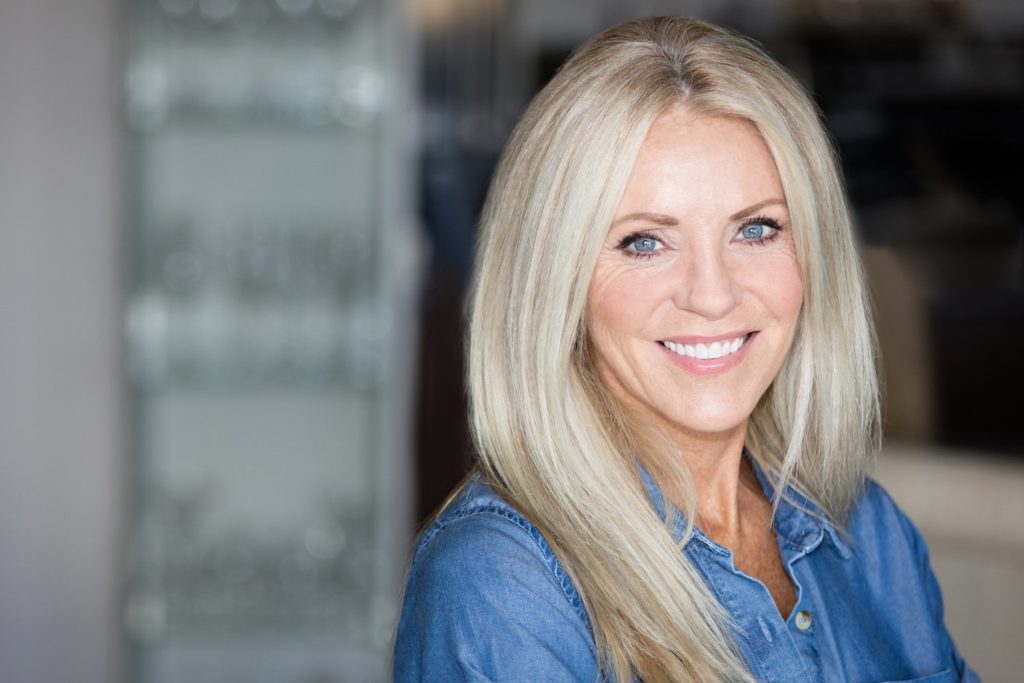Not feeling like your best self? You’re not the only one. Shifting hormones during perimenopause and after menopause affect every part of a woman’s body — right down to her hair, skin, and nails.
Wanting to look your best isn’t vain. You have a right to want to feel beautiful — and a right to seek help when you don’t. Age-associated changes to hair, skin and nails can be extremely challenging, and even if you’ve made every effort in the past to take care of your hair, skin, and nails, menopause has a sneaky way of flipping everything upside down.
Fortunately, there are things you can do.
Healthy Hair
Most women experience an increase in hair loss between ages 50 and 60, although some encounter the issue at an even younger age. Why does it happen? For one, hair naturally thins as we get older. Gray hair is finer, and female pattern baldness (androgenetic alopecia) causes hair follicles to shrink. Hair also grows more slowly as we age.
If your hair is falling out at a rate that alarms you, see your doctor to rule out underlying causes, such as illness or genetics. If all is well, focus on your diet. Nourish your hair with healthy fats — nuts, seeds, avocados, salmon — and lots of dark, leafy greens. Vitamin B7, aka biotin, is important for healthy hair, skin, and nails. It’s not found in abundance in food, so many women like to take a biotin supplement.
Glowing Skin
There are many skin changes during menopause. From acne to wrinkles to sagging to dryness, the effects of declining estrogen impact skin in a big way.
For overall skin health, what you do for your hair applies here as well. You need a balanced diet full of fruits and vegetables and healthy fats. Drink plenty of water, too. Hydration starts on the inside. And then there are your skin care products — you want to choose gentle products created to nourish your skin.
A few key ingredients to look for:
- Retinol is a powerhouse that helps with acne, wrinkles, and hyperpigmentation.
- Vitamin C helps with redness, hyperpigmentation, uneven skin tone, and wrinkles.
- Hyaluronic acid attracts moisture and helps keep skin plump and hydrated.
And then there are the all-important B vitamins, which aren’t just good for hair; they can also improve your skin. Niacin, or vitamin B3, helps with symptoms of acne, eczema, dermatitis, hyperpigmentation, and more.
(And remember, you need to take care of your skin all over, not just on your face. Though it’s not something many women talk about, vaginal dryness — and the accompanying itching and burning — is common. A vaginal moisturizer with hyaluronic acid will hydrate and soothe depleted tissues.)
Strong Nails
Brittle nails and cracking cuticles can happen at any age. As with hair and skin, healthy nails start with good health in general, and a diet filled with nutrients, including biotin (noticing a pattern?), is your first line of defense.
There are many excellent hand moisturizers on the market, though some of us just like a little coconut oil. If you like the manicured look, choose nontoxic nail products and avoid gel and acrylic nails — they weaken your natural tips. Keeping your nails on the shorter side will help prevent breakage and cracking, and skipping polish will allow them to breathe.
Want more? Learn the secrets to a good skin care regimen.
